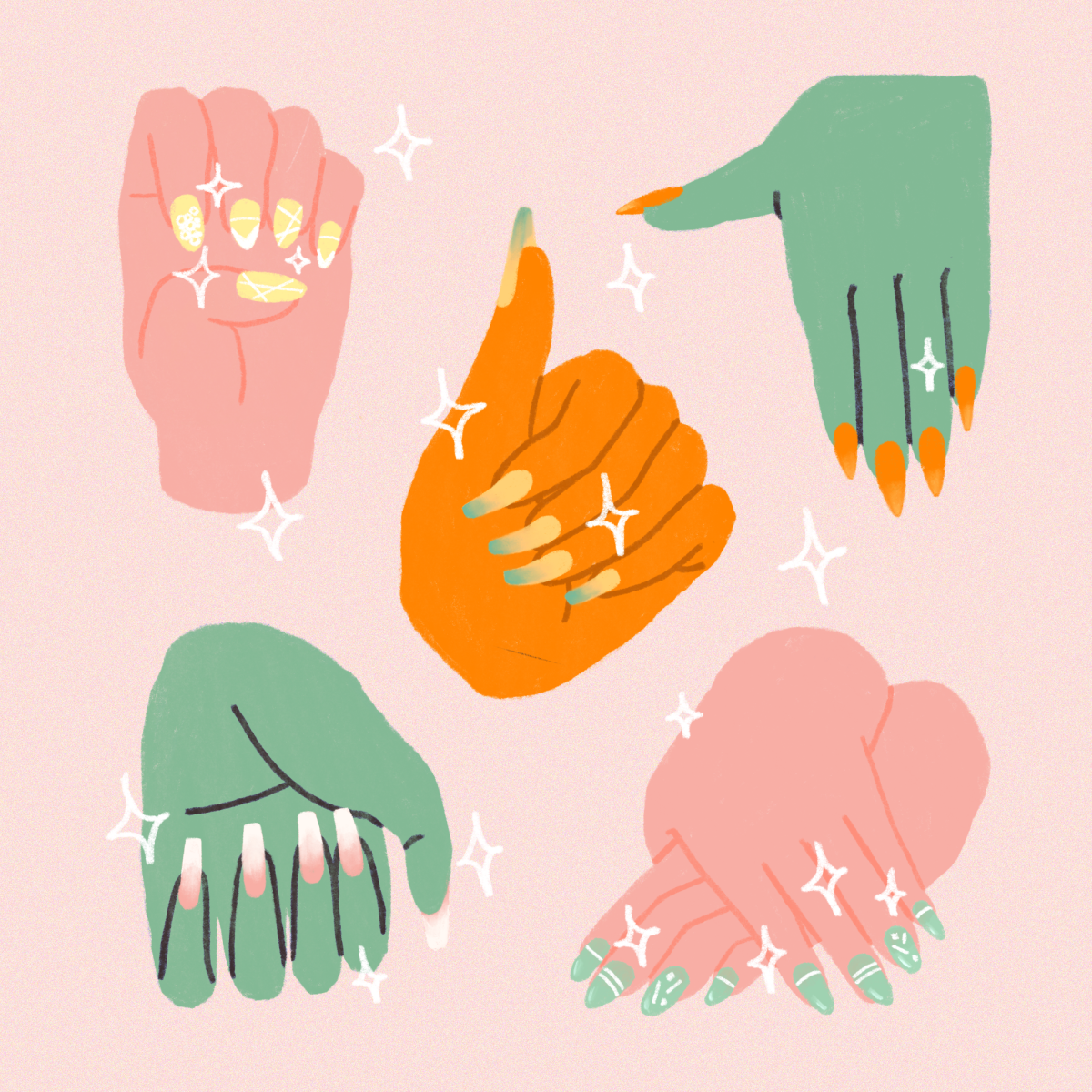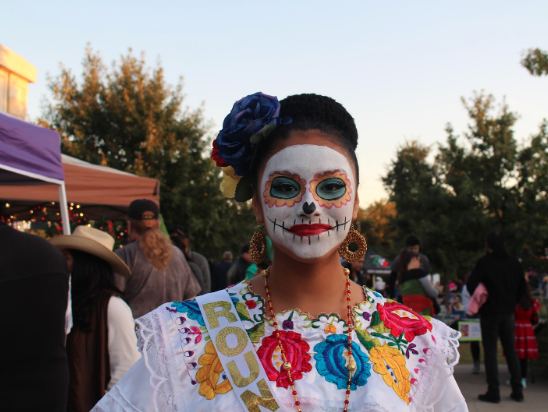Story and Photos by Helen Fernandez
First, you pick your leather. Then, you pick your textile. At Teysha, the Guate Boot experience is entirely personal.
Two years ago, Sophie Eckrich and Travis Breihan bought a one-way ticket to Panama in the hopes of starting a business that would help the people. Three months later, they returned to Austin with a business venture they never planned for.
Eckrich and Breihan were both born and raised in Austin. Eckrich studied textiles at UT and Breihan attended the University of Georgia. Together, they run the wholesome, socially-minded boot-making business that is Teysha. Breihan handles all of the creative and production aspects, while Eckrich looks over the workers and brand expansion.
When the entrepreneurial couple originally arrived in Panama, they had four business plans in mind. All of them revolved around creating something that would empower people to “collaborate across borders,” Eckrich says. “Within the first week of being in Panama, we really had a sense, which was reinforced by the people we met, that anything was possible,” she says. “One wise friend told us that good ideas are a dime a dozen, but you’ve got to pick one and actually do it, and go for it full force. So, we did.”
The idea of making shoes arose when Eckrich remembered a pair of flats styled after “mola,” which is the name for traditional Panama women’s dress, that had been handmade for her during an excursion to Colombia. With this in mind, Eckrich and Breihan went door-to-door in Panama until they discovered a small shop led by five women shoemakers. There, they created the first pair of Teysha shoes — colorful mola flats with rubber soles, similar to the ones Eckrich loved and wore so much.
Eckrich and Breihan then returned to Austin with five pairs of shoes and other products they had made during their time abroad. They began to show the products to their friends and family, but Eckrich says they were all especially excited about the shoes. Over the next month back home in the U.S., the couple developed the website and thought about how to get the shoes to consumers. Eckrich explains that their goal was to bridge the gap between art and function, and the shoes were the tools they planned to use to accomplish that.
As of now, the only other Teysha team members, apart from the artisans and co-founders, are Tessa Jacocks and Hanna Hall. Jacocks, the chief of U.S. operations for Teysha, graduated with a degree in textiles from UT last year. She was one of the first people to get her hands on the Teysha flats. As for Hall, she met Breihan at the University of Georgia, and they studied abroad together in Costa Rica. They spent five months studying Spanish and Latin American culture before heading over to Guatemala City after their program ended. “We spent about a month traveling Guatemala and Honduras and fell in love with the artisan crafts of Guatemala,” Hall says.
Three years later, Breihan and Eckrich began putting their shoe business in action, but needed someone to live in Guatemala full time. Breihan offered Hall the job, and she made the move in May 2013. Hall’s work involves hiring artisans, creating new shoe styles, buying textiles and forming relationships with textile producers around Guatemala. Originally from Houston, Hall says she now spends her days in Antigua in the workshop, cutting textiles, coordinating with artisans and looking over orders before shipping the shoes to Texas.
At one point in Teysha’s business venture, the co-founders were working out of Breihan’s parents’ garage. And, up until three weeks ago, Teysha operated from the inside of Jacocks’ garage. Now, the business has a showroom, perpendicular to Ancient Ink Tattoos, across from the “Greetings from Austin” mural on South First Street.
Inside, on the wall near the entrance, a wooden triangle formed by planks of wood, displays the intricately em- broidered Guate Boots. Under the decorative crescent moon that unites these two boards of wood, a sign reads:
“Our purpose is to connect people through art, culture, and community, and cultivate a more vibrant world.”
The detail on the sides of the Guate Boots are textiles taken from upcycled “huipils,” traditional garments worn by indigenous women in parts of Central America and Mexico. At Teysha, shoemakers upcycle these textiles and use them on the shoes. The weaving of a huipil can take four to eight months, and they are made on back-strap looms, like the one framing Teysha’s mission statement. The patterns on each huipil symbolize which tribe the women belong to. The textiles are cut and sewn onto the leather sides of the boots, flats and sandals. When ordering Guate Boots, a buyer gets to customize everything from the type of leather to the textiles sewn onto the shoes.
Although the boots are a hit, Teysha started out with flats — “Kuna Kicks,” to be exact. Kuna is the name of the indigenous people of Panama and Colombia, and their women make the mola textiles. According to the Teysha website, the Kuna are the only people who know how to craft the mola — an art form that has been around for hundreds of years. The first “Kuna Kicks” Teysha sold had a rubber sole. Now, revamped by the Teysha boot-makers, the flats have a leather sole, which makes for a more durable shoe.
The shoemaking process at the Teysha workshop in Pastores, Guatemala, begins with three key ingredients: the sun, the outdoors and a very laid-back atmosphere. Jacocks says that the work the artisans do blends into their way of life. The workshop is an open-air workshop inside one of the artisan’s homes, and 16 artisans work together to make the handmade leather shoes. The act of shoe-making can be a physically demanding job, so most of the Teysha artisans are men. However, by incorporating the “Huipil” textiles, women also take part in the shoemaking process. Each of the artisan’s hard work and craftsmanship goes into making a one-of-a-kind shoe.
Every shoe takes a team of people to make, too. A “cortador” cuts the textiles and the leather. A “prespuntador” puts the body of the shoe together. Finally, the “ensuelador” hand-stitches the boot and sole to make a sturdy shoe. Then, a small leather tag is attached on the side of each pair, signed with the initials of the artisans involved in each part of the shoe-making process.
Teysha’s website has a page dedicated to the artisans and their personal stories. When a customer buys a pair of shoes, he or she can find out who worked on what part of his or her shoe. For most of the artisans, shoemaking is a craft that has been passed down from previous generations. By employing their craft, the artisans earn a living wage and make something that is used and appreciated internationally. That is what Eckrich and Breihan wanted all along. “They figured the best way to really gain an appreciation and modernize the ‘mola,’ and also bring attention to another kind of art form in the community, is shoemaking,” Jacocks says, sporting her own pair of Teysha sandals. Uplifting the artisan community is one of Teysha’s priorities. Jacocks says that they do not plan on mass-producing, and they would never want to grow faster than the artisans could handle.
A portion of Teysha’s proceeds go toward the Global Village Initiative, an environmental awareness and impact agency. The organization’s initiative is to “incubate social enterprises, provide educational opportunities, increase food security, create access to appropriate technologies, and offset our environmental impact through reforestation and sustainable agriculture initiatives.” Apart from running an eco-friendly business, Teysha is partnered with “Fundación Luz y Fortaleza,” which works with the community of Ustupu to create a women’s cooperative and food security program. In May, Teysha will have been in business for two years.
They have come a long way from the inside of a garage, selling shoes and filling out orders. Today, Teysha has a showroom, a partnership with Whole Foods Market and several other projects in the works. They sell flats, boots, hats, belts and will soon debut their sandals. To top all of that off, the Teysha team is about to launch a Kickstarter campaign that will help fund the construction of their dream workshop in Guatemala.
The Teysha experience is all-encompassing, from their detailed website to their open invitation for visitors at their workshop in Guatemala. The fact that 100 percent of the profits go toward paying the artisans and buying more shoe material makes the purchase of Teysha shoes that much more rewarding.
Their business card sums it all up in five simple words: Kickin’ poverty with every pair.













































